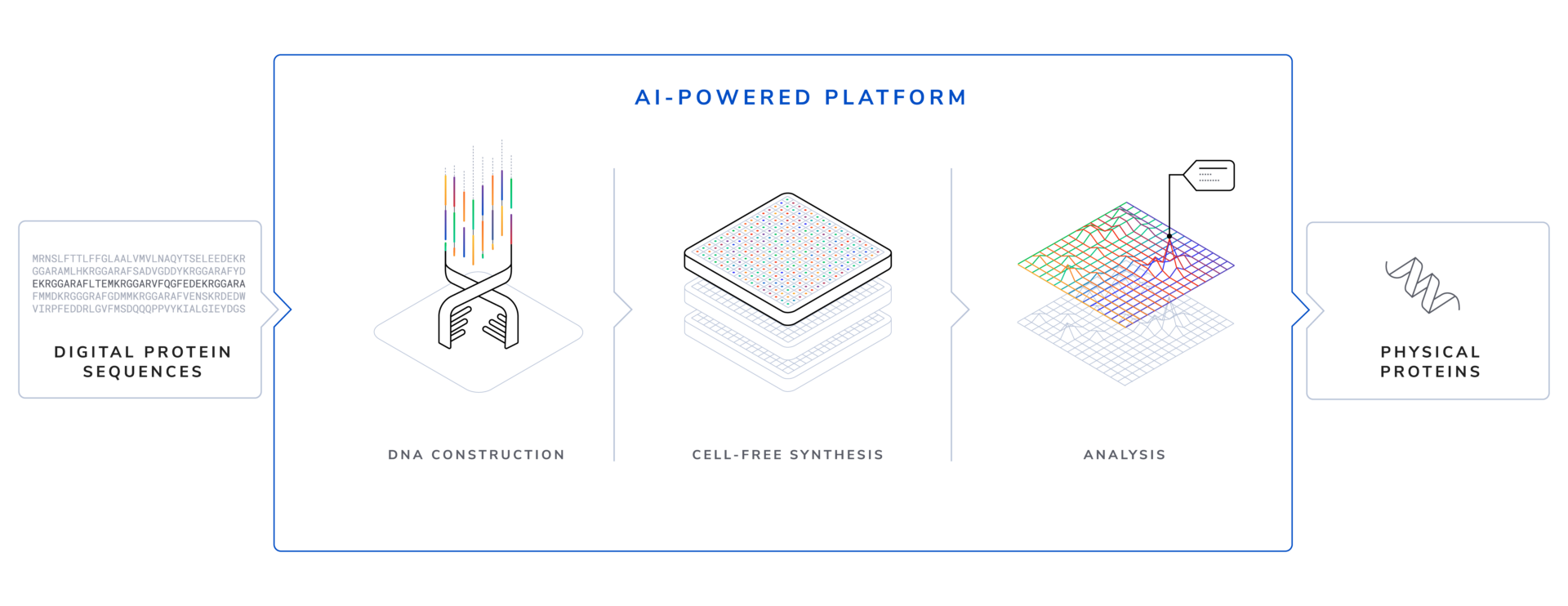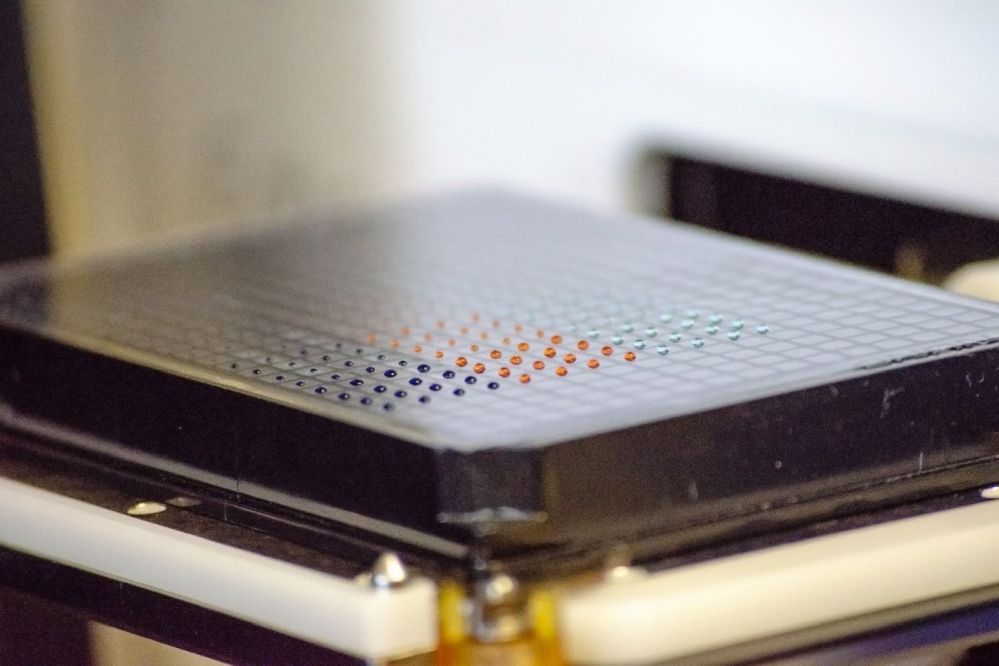Tierra Biosciences—a California-based startup developing AI-guided cell-free technology to enable high-throughput custom protein synthesis—has closed an $11.4m Series A round led by Material Impact.
The round, which adds to the firm’s $6 million in seed funding and over $7 million in grant funding, was supported by new and existing investors including Prosus Ventures, In-Q-Tel (IQT), Hillspire, Freeflow Ventures, Creative Ventures, and Social Capital.
“Traditional protein engineering using living cells is slow, inefficient, and data poor,” said CEO Michael Nemzek. “Tierra’s cell-free protein production platform will change the game, powering our customers’ discovery efforts with rapid access to large numbers of discrete custom proteins for screening and discovery, plus fast yield scale-up for downstream development and pilot work.”
“Tierra’s platform propels innovation in the bioeconomy by eliminating bottlenecks in protein discovery and manufacturing.” Corinna Chen, partner, Material Impact
Why it matters
Traditionally, firms seeking to develop new proteins make them one at a time using microbes such as E.coli as a production platform, CEO Michael Nemzek told AgFunderNews.
“Then they have to transfect the cells [insert foreign DNA that instructs the cell to make the target protein], they have to extract the protein from the cells and purify it and so forth, so it’s laborious and slow and you really don’t learn much from the process.”
Instead, San Leandro-based Tierra—founded by Dr. Zachary Sun, Dr. George Church, and Dr. Richard Murray in 2015 as Synvitrobio—produces designer proteins to order using the bio-machinery found inside microbial cells such as E.coli, hence the term ‘cell-free,’ said Nemzek.
“We believe [Tierra will deliver] transformative acceleration of protein design-build-test-learn cycles within the industry.” Chenny Zhang, principal, investments, IQT
Designer proteins to order
In the same way that companies can now order DNA sequences, Tierra customers can order designer proteins from Tierra’s protein platform.
First, they enter digital protein sequences into Tierra’s online portal, which then assesses their properties and the most efficient ways to biosynthesize them. From there, Tierra uses a cell-free manufacturing process to express the final proteins, which are then shipped to customers for testing, said Nemzek.
“Basically a customer gives us a protein sequence and we design the DNA that codes for that sequence and assemble the DNA in a special way. And then we take it through a series of automated steps that combines it with our proprietary highly engineered cell-free reagents that enable us to produce the protein.”
A customer might come to Tierra with a single protein in mind or hundreds of protein structures it wants to test, said Nemzek.
“We have some customers that will order 100 at a time. So, they typically are using AI to design different protein structures and they want to validate their model and see how changing amino acids at different positions of a protein affects its properties.”
‘Design, build, test and learn cycles get compressed’
He added: “In the cell free world, we can make proteins that in some cases you can’t make easily in a cell, but the main benefit is just that it’s much faster, we can make hundreds of proteins at a time, so the design, build, test and learn cycles get compressed.
“The other thing that’s nice about cell free is you can run numerous conditions for each protein, so we generate very large amounts of data that can be fed into large AI language models.
“So then you start being able to predict how proteins behave. Our first milestone is to say, hey, we can make a protein or not, an AI will tell us that answer. Further out the idea is that if a customer wants to make a protein we can say well, it won’t work, but here’s how you need to change it so it will, because we have all this data on protein design, structure, and function.
“So if you need to add a chaperone for a protein to make it [chaperones are proteins that assist in protein folding or unfolding], or use a different cell free extract type, things like that, we’ll be able to correlate that with the type of protein people want to make.”
Once a customer has received proteins from Tierra at micro gram scale and identified perhaps a small number of proteins of real interest, Tierra can then produce more of said proteins at milligram scale, and in future at gram scale for pilot work, said Nemzek.

AI-powered platform
To date, Tierra has worked with customers in pharmaceuticals, biotech, agriculture, food, and other industries, and will use the series A funds to expand its platform, build its team and advance its AI data generation efforts, said Nemzek.
“We made over 5,000 proteins to date and each protein we make has data associated with it and these large language models look at this and get smarter and smarter over time, such that we can start to predict, based on sequence, the behavior of the protein.”
The work done by the platform to identify how to produce the protein using a cell-free approach can also help clients determine optimal conditions to produce it at scale, he explained.
The learnings from the platform “transfer pretty well to the cell world” for large-scale production, which in many cases will not be cell-free, he added.





